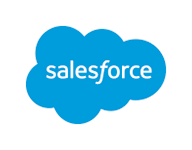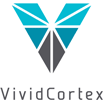Digital disruptions and best practices (sponsored by IBM)
What you'll learn
- Learn how to effectively use frameworks and methods to create business models that are intelligent and resilient
Description
The digital world has produced efficiencies, new innovative products, and closer customer relationships globally by the use of mobile, IoT (internet of things), social media, analytics, and cloud technology. The innovators and disruptors create new products and systems through web operations, DevOps, and systems engineering. Yet as systems continue to gain complexity through emerging technology, the failure rates in budgets, schedules, and quality goals become increasingly unmanageable.
Ben Amaba explains why we need discipline to underpin innovation in order to revolutionize the digital world. As technologies go from the hyper stage to the production phase, we need to be prepared to manage the lifecycle. We need to consider the new digital world as a journey rather than a destination if we are to remain competitive. The data explosion—along with the concomitant surge in sensors and digital tools—has been happening for decades, but the systems have not converged on an enterprise platform governed by overarching discipline, creating disruption as components get tangled in unpredictable chaos.
What created the competitive advantage through technology could be the Achilles heel for organizations later in the lifecycle. However, through the effective use of frameworks and methods like Industry 4.0, digital twins, cognitive capabilities, and cloud technology, we can create business models that are intelligent and resilient. Continuous validation and verification of an evolving digital strategy is necessary to understand, reason, learn, and react to data organizations possess, data outside the firewall, and data that is coming from unstructured sources or dark data. The new intelligent systems will combine human mental and machine muscle to continuously become better.
In short, we need a platform approach for infrastructure, APIs, microservices, and data with artificial intelligence to continuously monitor the journey; but more importantly, its foundation must be based on professional standards and well-governed processes. Robust requirements, design, architecture, testing, and change management continue to provide an integrated and intelligent foundation for the new systems.
Research demonstrates key best practices to connect to cloud-based yet secure open platform technology, leading to cognitive or intelligent systems. Intelligent systems can better address the major challenges in the digital transformation. Ben explores examples of public-private partnerships dealing with technology, workforce, standards, and innovation in order to transform but maintain a digital advantage continuously.
This session is sponsored by IBM.

Ben Amaba
IBM
Ben Amaba is chief innovation officer for the industrial sector for IBM’s Watson and Cloud Division, where he is responsible for industrial manufacturing, infrastructure, and logistics solutions and leads digital transformation of complex integrated systems where performance, quality, and sustainability measurements are foundational to a successful outcome. He has published globally on best practices and robust approaches to drive market innovation, economic development, and public-private partnerships. Ben holds a copyright for the Process Activity Flow Framework. An advocate of professional engineering licensure, he has been a keynote in major professional and industry conferences around the world for the past 30 years and is prominently featured in Giving 2.0 by Laura Arrillaga-Andreessen. Ben is a member of the United Way Tocqueville Society, which recognizes local philanthropic leaders. He holds a PhD in industrial and systems engineering, an MBA/MS in engineering and operations, and a BS in electrical engineering. He is a registered and licensed professional engineer in several states with International Registry, is certified in production, operations, and inventory management by APICS, is a LEED Accredited Professional in leadership in energy and environmental design, and holds a certificate in corporate strategy from MIT.
Sponsorship Opportunities
For exhibition and sponsorship opportunities, email velocity@oreilly.com
Partner Opportunities
For information on trade opportunities with O'Reilly conferences, email partners@oreilly.com
Contact Us
View a complete list of Velocity contacts
©2018, O'Reilly Media, Inc. • (800) 889-8969 or (707) 827-7019 • Monday-Friday 7:30am-5pm PT • All trademarks and registered trademarks appearing on oreilly.com are the property of their respective owners. • confreg@oreilly.com




















